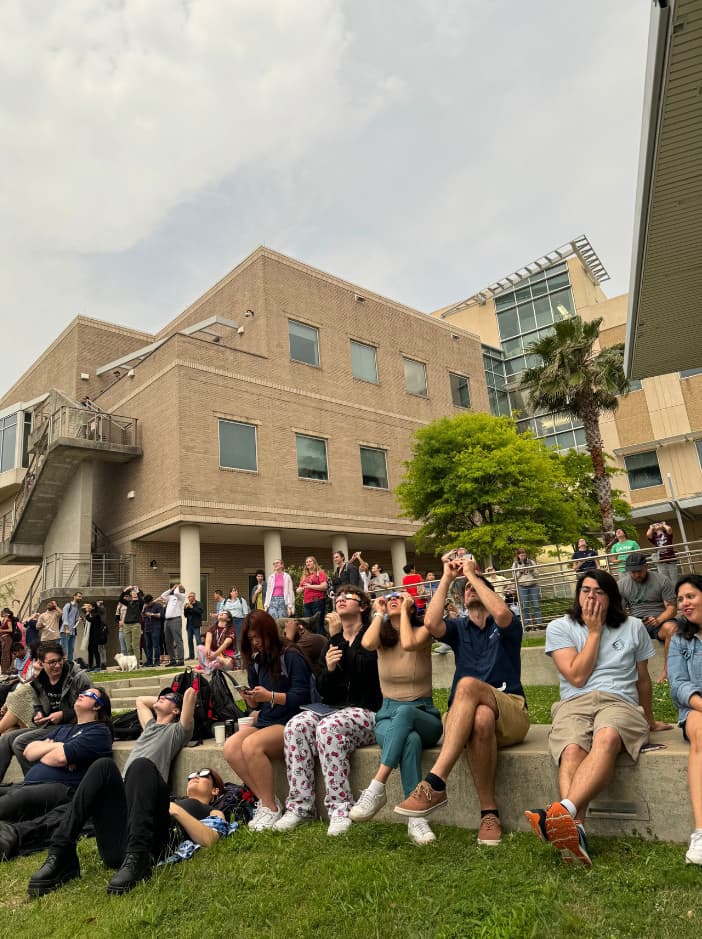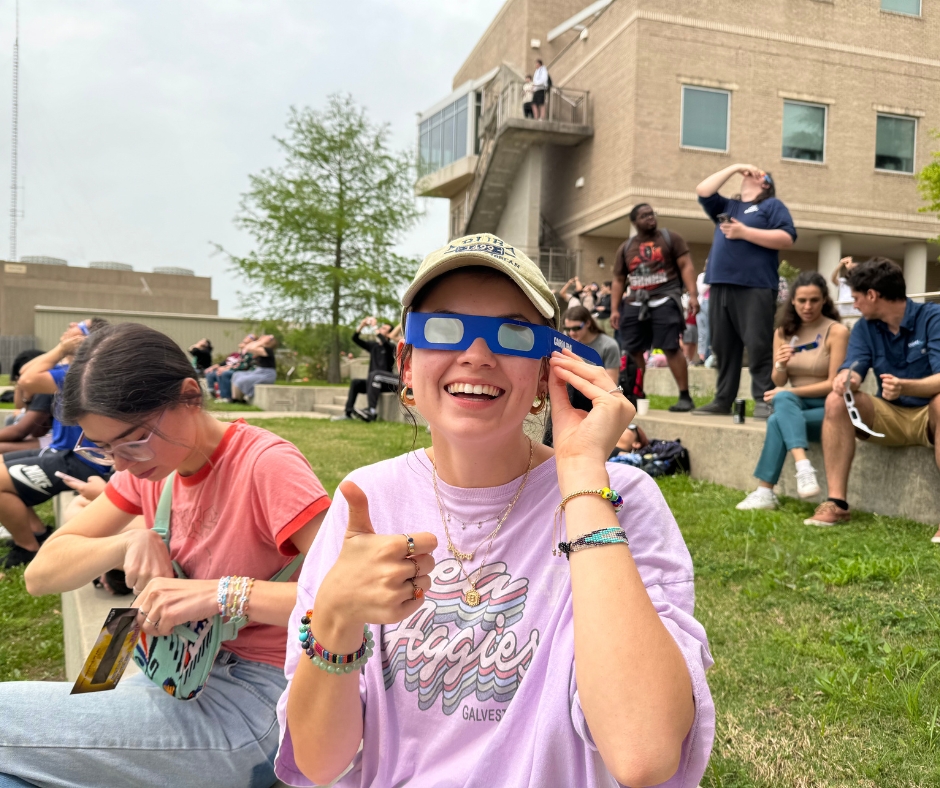Fact Or Fiction: Is It Easier To Catch Fish During A Solar Eclipse?
April 10, 2024
Tweet
By Lucie Hartman '24, Division of Marketing and Communications
On April 8, 2024, the moon completely blocked out the sun in a total solar eclipse. Following a 115-mile wide path starting in Mexico, the eclipse moved across Texas and toward the eastern United States, bringing tourists out all across the country in full force. Some fishers might have even had better luck than usual with their daily catch.
During the eclipse, the sky darkened, shadows faded and changed shape and the moon covered the sun for up to seven minutes in some locations. Although Galveston did not experience a total eclipse, students, staff and faculty at Texas A&M University at Galveston saw a partial eclipse.

During totality, when the sun is completely shielded by the moon, the Earth’s air temperature will drop and an eerie silence may accompany the strange shadows and cool weather. There is some evidence that eclipses can change animal behavior, including anecdotal reports from fishers claiming that fish are easier to catch. Dr. Jay Rooker, a Regents professor in the marine biology department and principal investigator of the Fisheries Ecology Lab at the Galveston Campus, is familiar with these accounts.
"Lots of animals including many species of fish have pronounced day-night shifts in where they forage or take shelter," said Rooker. "Light cues, or changing light conditions, often trigger migration or movement events and thus changes such as solar eclipse or other cosmic events may cause them to initiate these movements, say to preferred nocturnal habitat, at the wrong time."
Any effects of the solar eclipse are short-lived and fish go back to their normal behavior as soon as the eclipse is over and regular daylight conditions return. Areas that experienced totality had the best luck hooking a nice fish during the eclipse, but sadly for eager fishers, there will not be another total solar eclipse in North America until 2044.
###
Media contact:bounds@tamu.edu
More:
Read more about Marine Biology
Read more about Student Life